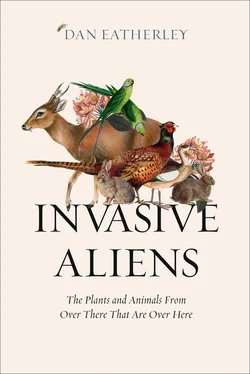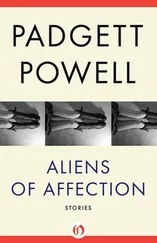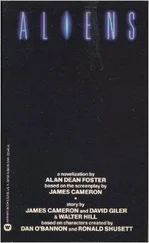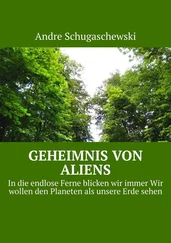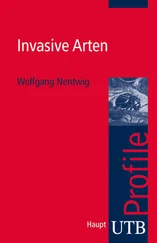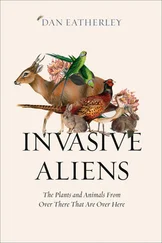Despite this, carp was historically less important in Britain than elsewhere, perhaps because by the sixteenth century improvements in navigation and ship technology were, for the first time, allowing exploitation of vast new shoals of marine fish from offshore Atlantic waters. The common carp nevertheless qualifies as among the first non-native fish to have naturalised in Britain and remains abundant in still and slow-flowing waters across England, with scattered populations in Wales and Scotland. The species is often accused of muddying the water as it ploughs river and lakebeds for invertebrates, fish eggs and other buried morsels. The resulting high water-turbidity stops light penetrating and interferes with photosynthesis, messing up food webs. But carp enthusiasts, of which there is a growing army in Britain, argue that recreational boating and other human activities are as much to blame.
A fascination for all things botanical, both native and exotic, also germinated within the monasteries and aristocratic households of Britain during medieval times; commercial horticulture can be traced to the thirteenth century, with enterprises in London and Oxford selling seeds in large numbers. Husbandry , a set of rules for estate management by Sir Walter of Henley published in 1280, states that imported corn-seed often outperforms home-grown counterparts, and this influential work may have encouraged the acquisition of foreign plants. By the late 1300s the Dominican friar and herbalist Henry Daniel was nurturing 252 sorts of herb in his garden in Stepney, London, of which 100 were non-native.
Plants were cultivated primarily for function not aesthetics, although the beauty of snapdragons, snowdrops and snake’s head fritillaries – all of them apparently introduced during this period – is undeniable. Dill, coriander, summer savory, black mustard, fennel, caraway and parsley were all condiments whose use had declined after the Romans left but which made a big comeback during medieval times. Hitherto unknown species also arrived including saffron, a luxurious yellow spice made from the dried stigmas of a crocus flower. The plant originated in western Asia and is first recorded in England in the fourteenth century. Used as culinary ingredient, dye, perfume and aphrodisiac, saffron was famously grown in East Anglia, its economic significance such that a major centre of production, the Essex town of Walden, adopted it as a prefix in the sixteenth century.
Horticultural introductions served other purposes. As its name suggests, the leaves and roots of soapwort, a member of the pink family native to the Middle East, contain natural detergents. Appearing in Britain from medieval times, soapwort found use in the wool trade, washing not just woollen products but the sheep from which they were derived; as recently as the 1970s, extracts were employed to clean fragile tapestries. Chasteberry, a type of vervain with purple flower cones which originates in the eastern Mediterranean, was used in monasteries to suppress libido among the acolytes, and nuns stuffed their bedding with the aromatic leaves to quash wicked urges. (The ancient Greeks prized the plant for the reverse effect: women slept on it to enhance their fertility.) The Aegean wallflower, meanwhile, was esteemed for the fragrance of its vivid golden blooms, reminiscent of violets. In its home range, the plant spreads over cliffs, and may have first reached Britain stuck to building stone imported by the Normans. It’s still found clinging to ancient edifices from Bury St Edmunds Abbey in Suffolk to Northumberland’s Lindisfarne Priory.
Almost every introduced plant offered some or other kind of therapeutic function. Gout was treated with wall germander, a variety of mint; feverfew, in the daisy family, was a traditional painkiller; hollyhock, a laxative. Many plants were considered panaceas. Sweet cicely, a celery relative whose strong scent called to mind myrrh, was one of countless such ‘cure-alls’ and was used to remedy rheumatism, cleanse cuts and salve sore throats. It could relieve asthma, cure snakebite and promote sleep. Sweet cicely even stopped you farting. From time to time, serious mistakes could be made: to medieval midwives, the pretty yellow flowers of birthwort, a variety of clematis, resembled wombs – one shudders to imagine how they would know that – and they would administer its sap during labour to expel the placenta. It turns out that birthwort extracts are carcinogenic and may have killed thousands of women over centuries of misuse.
Such cases were rare however, and did little to disillusion medieval herbalists. Yet, in the fourteenth century there arrived in Britain a disease – caused by one non-native and apparently carried by others – which even sweet cicely would be powerless to prevent (although people gave it a go). It would help change the course of human history, disrupting existing power structures and kick-starting an era of empire building and world exploration to dwarf anything achieved by the Romans and Normans. And the unprecedented globalised trade and migration that resulted would turn a trickle of non-native species into a deluge.
Конец ознакомительного фрагмента.
Текст предоставлен ООО «ЛитРес».
Прочитайте эту книгу целиком, купив полную легальную версию на ЛитРес.
Безопасно оплатить книгу можно банковской картой Visa, MasterCard, Maestro, со счета мобильного телефона, с платежного терминала, в салоне МТС или Связной, через PayPal, WebMoney, Яндекс.Деньги, QIWI Кошелек, бонусными картами или другим удобным Вам способом.
